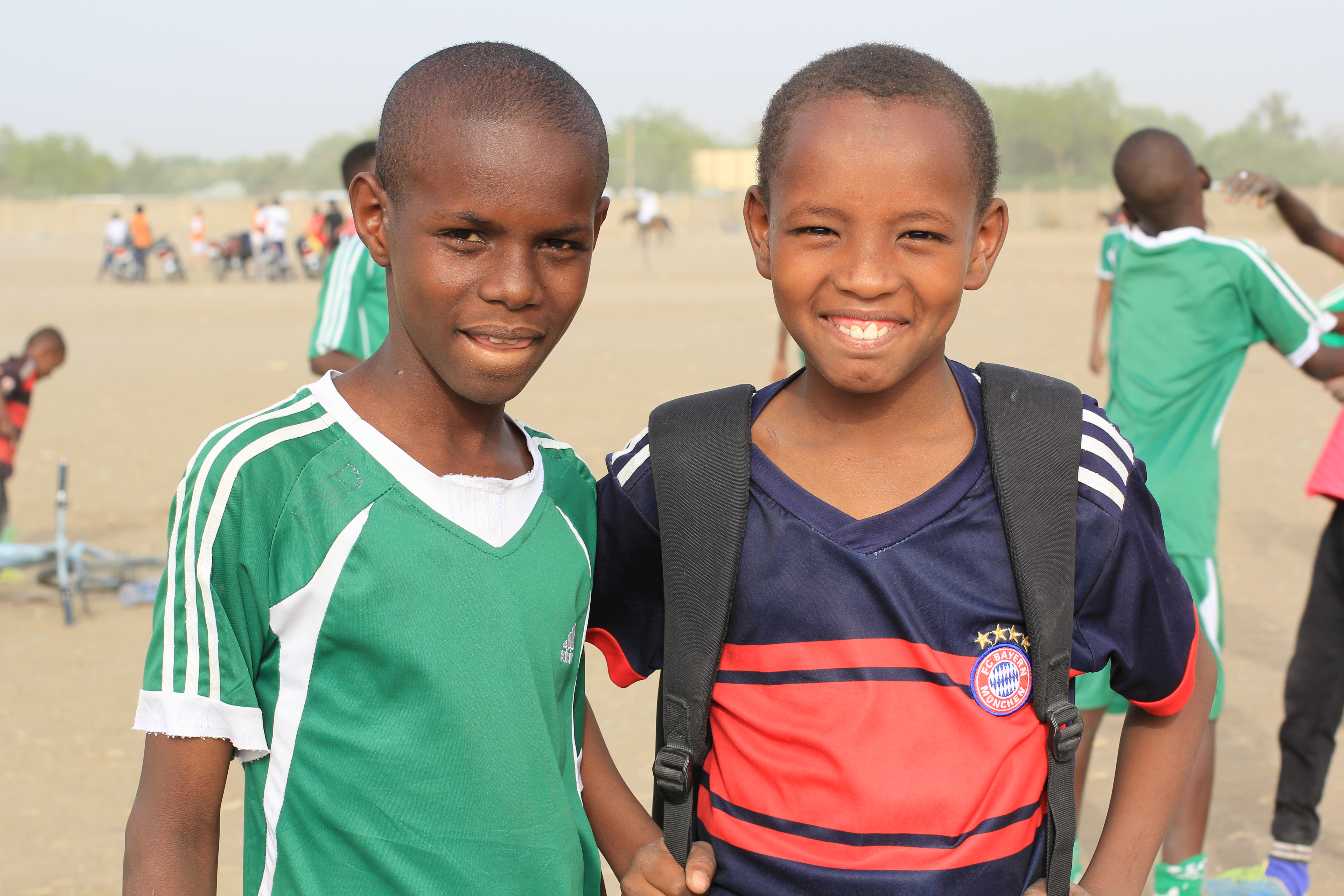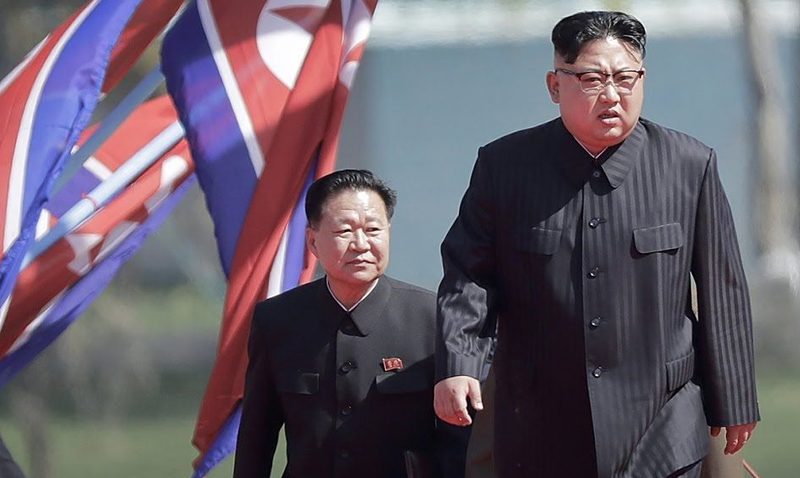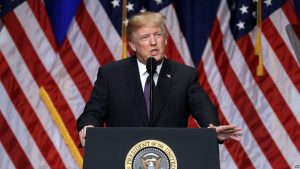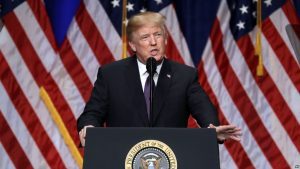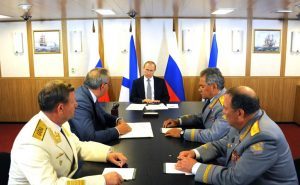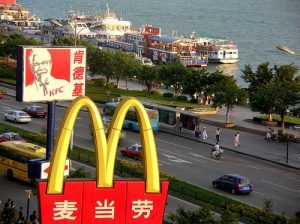The Futility of Foreign Airstrikes on Syria…The worst or just one among many bad options!
The U.S., U.K. and France have launched coordinated attacks on sites related to the Syrian Chemical Weapons Program in Damascus and Homs on Friday.

Many observers gazing upon the current bloodshed in Syria, Perhaps, just like them, you have been wondering why America, France and Britain have launched a coordinated airstrike in Syria to punish the regime for an alleged chemical weapons attack that killed more than 70 people last week.
It seems to be obvious that the issue of poisoning the Russian spy Sergi Skripal has paved the way to punish Moscow diplomatically, and played a decisive role in the decision of British Prime Minister Theresa May to participate in the strike operations without getting the endorsement of the British House of Commons, unlike in 2013 when former Prime Minister David Cameron failed to obtain parliamentary approval. However, some have even floated the idea that the UK is the one who poisoned the spy and his daughter to make Russia look bad, and eventually find a reason to attack Syria.
More than a hundred missiles were launched and the airstrikes lasted no longer than seven minutes. American, French and British naval and air force units were involved. A few hours after the airstrikes; U.S. President Donald Trump twitted “Mission Accomplished” – the U.S. president’s choice of words recalled a similar claim associated with George W. Bush following the U.S.-led invasion of Iraq and former French President, François Hollande.
After the seizure of Timbuktu on January 29, 2013, France’s Hollande declared: “We are in the process of winning the battle.” This naivety and lack of foresight were followed by the declaration of the former Defense minister of France, Jean-Yves le Drian, thus: “The mission is fulfilled.”
This funny scenario looks too much like the 2003 mission accomplished speech by former U.S. President George W. Bush after the fall of the Saddam Hussein’s regime in Iraq, but look at these countries now after those arrogant declarations. Currently, these countries are nothing, but fragile states and strongholds of terrorists. These French and American temperamental behaviors only functioned as a guideline for future actions for the spread of terrorism, and it will only lead to further waves of immigration to Europe, thus reminding the world of their status of dominant powers. Any expert would agree that the war in Syria, Libya, Mali and CAR is far from being won. It’s clear that the recent airstrike on Syria has its own political and economic agendas, and it might just be a tool to please public opinion at home or challenge Russia and China abroad.
Numerous current studies clearly indicate that outside military interventions tend to lengthen the expected duration of civil wars, making the hostilities more bloodier and longer, consequently, more serious regional disaster, hence if we look back at Somalia, Libya and CAR or even Iraq and Syria, foreign military interventions in these countries are nothing, but just disastrous failures.
David W. Orme-Johnson, PhD, Professor Emeritus of Psychology, Maharishi University of Management, who’s against all air strikes and for world peace; argues that there are over 50 highly rigorous studies show that group practice of Maharishi’s technologies of the unified field create coherence in collective consciousness, which provides the basis for peaceful negotiations and conflict resolution.
“The only practical way to achieve this; is to create large coherence creating groups on every continent. Otherwise it is same-old going on century after century leading countries according to policies that are based on a profound ignorance of the possibilities of human life to be aligned with the total potential of natural law at the basis of every human mind.” Orme-Johnson stressed.
The leaders of all countries should be aware of this research before they eagerly pull the triggers that will lead us all into more war. We have arrived at a time in history when such stupid actions will no longer be held excusable by future generation.
In a moment of hope and frustrations in our modern world, perhaps you may wonder, whether the cold war is coming back again? The Cold War, which followed the Allied victory in World War II, saw the U.S. and its allies facing off for decades with the Soviet Union, of which Russia is the main successor state.
Jonathan Adelman argued in his research that the Cold War is gone, never to return, and a weakened Russia can hardly launch a new Cold War. Talk of a revival of the Cold War is merely rhetoric, not reality. “Putin’s Russia is not the superpower of the Cold War era. It still retains a major nuclear capability comparable to that of the United States. But its conventional capabilities are far weaker than after World War II when it played a major role in defeating Nazi Germany and occupied Eastern Europe. The Red Army performed poorly in the first Chechen War (1994-1996) and showed modest improvement in the second Chechen War (2000-2004). Its victories have come against weak forces in Georgia, Crimea and Left Bank Ukraine. Since the disintegration of the Soviet Union in 1991, the Red Army has been pushed back up many hundreds of miles from the center of Europe to defending Saint Petersburg and Moscow. Meanwhile the American military budget is over seven times greater than that of Russia.” Adelman said.
On the other hand, The United Nations Secretary-General Antonio Guterres has said during the second meeting of the Security Council this week on the conflict in Syria the ”Cold war is back with a vengeance”, as he issues a warning that the world is at risk of ”full-blown military escalation” over the latest suspected chemical attack in Syria.
In an exclusive interview with Dr. David R. Leffler, Executive Director at the Center for Advanced Military Science (CAMS) argued that there is no peer-reviewed research that shows that air strikes create peace. Invincible Defense Technology is backed-up by peer-reviewed research showing that it does create peace. If President Bashar al-Assad would properly apply Invincible Defense Technology (IDT) in Syria it would be the ideal solution to quickly create a lasting peace to this troubled region. The phase transition to start this process would take less than 500 experts who would practice the advanced IDT technique in group twice-a-day.
“If the leaders of the United States, United Kingdom, France, and Russia really desire to marshal their righteous power against the barbarism and brutality of war they should have the courage to order the their militaries to use IDT, if any of them quickly act, their military could make history and gain international prestige by creating lasting peace.” Dr. Leffler added.
The political landscape in Syria and the Middle East in general is very fragile and complicated, it is a mixture of thousands of years of deep ethnic and religious conflicts, Western powers must realize this and deal with the bloodshed in Syria and the tensions in the Middle East in a spirit of realism, noting that the spread of the conflict would be a “catastrophe” at a crucial stage of the global economic recovery. The recent airstrikes will only pave the way for ISIS 2.0 or other terrorist groups to come back again; we can’t face barbarism with brutality; ladies and gentlemen.
You may wonder also, is there any political solution for Syria? At the first glance, it would seem to you like there’s no political solution for Syria because Russia and Iran don’t want it. Perhaps their characters and strategies are very different from the West’s. However, and to answer that question, one would do well to look at a map of the region during the Ottoman Empire. Of course Turkey and Israel won’t be ignored on this map. What Syria needs is a real and effective political solution, not more airstrikes.
Certainly, Washington’s goal is to establish a friendly government in Syria to counter the influence of Iran and Russia, their “old enemy” in the region. However, direct military interventions at this stage can be the real and realistic option if the international community and the Arab Sunni states are serious about keeping the Syrian state from political collapse and the disintegration of the social fabric that binds the Syrian sects and ethnicities.
But we are now talking of much greater matters, America and its allies do not have clear authority to launch airstrikes or use force in response to Syria’s use of chemical weapons, and they may not care whether their actions are lawful under international law, Under the U.N. Charter. The recent airstrikes on Syria sounds to me like “you can kill whoever you want, but don’t use chemical weapons!” The U.S. and its allies are prohibited from using force in Syria unless authorized by the Security Council or exercising its right to individual or collective self-defense.
There are a million reasons to believe that foreign military interventions usually fail in the 21st century. Regional initiatives would actually be more effective than Russian and Western interventions because they minimize the likelihood of imposed solutions. Any foreign airstrike on Syria should be in a wider coordination with the U.N. Security Council and the Sunni Arabs in the Middle East and perhaps Turkey as well. Despite the fact that Turkish military operations against YPG which is considered as an ally by the U.S. and its allies in its fight against ISIS in Syria, makes the existing relations between the actors in the field more complicated than ever.

